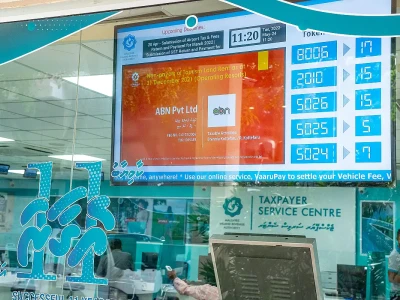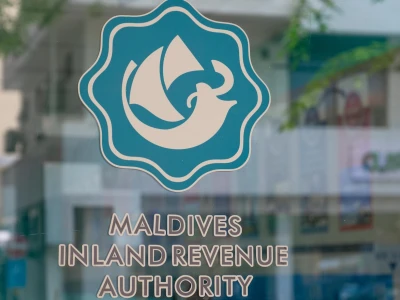
MPs call for green tax allocation to origin islands
Some MPs have said that if Green Tax is distributed to an island, it is unfair to other islands.
By
Umna Ismail
Several parliamentarians on Monday called for green tax money collected from local islands to be made available to those respective islands.
In Monday's parliamentary debate on the proposed amendment on increasing Goods and Services Tax (GST) and resuming green tax collection, MPs deliberated on how Green Tax can be levied and how the tax can be distributed.
Speaking at the debate on the bill, Velidhoo MP Mohamed Abdulla Shafeeq reminded that the purpose of green tax is to protect the environment, and said that at least a part of this tax collected from islands must be returned to them respectively. He said that through the recommended amendments, the island authorities would be able to use the funds to solve the environmental issues faced by the island.
Some MPs spoke against this notion and said that if the green tax collected from specific islands is returned only back to them, then it is unfair to other islands. Hulhumale MP Ali Niyaz said that if green tax funds are distributed this way, most islands will not receive any tax returns.
Niyaz added that even when the Decentralisation Act was amended, discussions were held on the same issue. The amendment was not made as some islands would be left out.
"In such an instance, only four atolls in the Maldives will be earning, while the rest is left out. Only a few atolls such as Alifu Alifu, Alifu Dhaalu, Kaafu and Baa Atoll will receive the majority of revenue from land rent," Niyaz said.
Following Niayz's remarks, Shafeeq elaborated on his statement. He said that the money should be made available to only local islands, from which the green tax was collected. He added that if tax returns from resorts are distributed that way, the whole country will not benefit equally.
Making an example of K. Maafushi, one of the most popular local tourism destinations, Shafeeq noted that despite the large amounts of green tax collected via the island, they still suffered from many unresolved environmental issues. He said that if the tax money was returned to the islands, efforts would be made to resolve the issues at the island level.
"All my fellow members concur that Maafushi has the most number of guesthouses in the country. Yet, their waste disposal issues are crippling. So what is the solution that has been achieved in the six years since Green Tax was introduced," Shafeeq said.
Supporting his statement, Ungoofaaru MP Mohamed Waheed asserted that since green tax is levied to finance environmental solutions, it is wise to look into how the funds are utilised now.
"If that is the case, it is necessary to ensure whether green tax funds are used for environmental issues or the construction of a football field or something else," Waheed said.
He also believes that green tax money should be used to solve the issues of beach erosion and other environmental issues in the islands. He also said that this needs to be done at the island level.
"I believe that the green tax levied on the services provided in the island should be spent on environmental issues. Green Tax, not other taxes, must be distributed according to the island's share," Waheed said.
Kendhoo MP Ali Hussain also stressed the point that the green tax objectives have not been achieved. He said that while it is a tax levied in the name of spending on environmental issues, it is used to spend for other purposes.
"We need to use the money to work for environmental purposes, to solve waste disposal issues and combat climate change effects," Hussain said.
"This money should not be used for land reclamation, or projects that harm the environment, and especially not for wasteful expenses".
Amendments to the Tourism Act:
With the amendment to the Tourism Act in June, green taxing has been halted. This was due to an error in the green tax commencement date during the drafting of the bill.
-
Article 34 of the Act, passed by the Parliament and ratified by the President on 3 July, was amended to allow Green Tax to be levied starting from 1 January, 2023.
-
MIRA said that it was not possible to collect Green Tax at this time, under the given conditions as the amendments.
-
MIRA said that the state is likely to lose MVR 200-300 million of the projected revenue from Green Taxes.
The government proposed amendments to the Tourism Act to resolve this issue.




